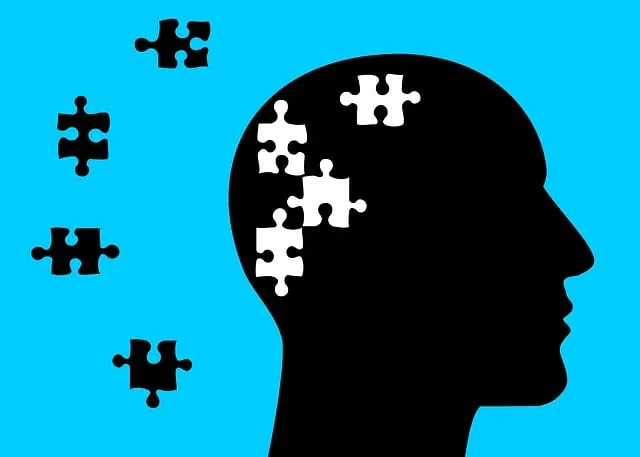In today's fast-paced world, prioritizing mental wellness is crucial, especially with accessible resources like the Kaiser Permanente mental health phone number Lakewood. Self-assessment tools play a vital role in helping individuals understand their emotional state through online questionnaires and mobile apps. An ideal tool assesses mood, anxiety, stress, sleep, and social dynamics using validated scales. Integrating resources like Social Skills Training and Trauma Support Services allows for targeted coping skill development. The Kaiser Permanente Model promotes holistic care by combining self-assessments with proactive strategies, encouraging self-care, preventing burnout, and ensuring high-quality mental health services through continuous evaluation.
Mental wellness self-assessment tools play a crucial role in empowering individuals to take charge of their mental health. This article explores the development of such tools, focusing on understanding the growing need for accessible and effective resources. We delve into key components essential for accurate assessments and discuss successful models like Kaiser Permanente’s approach. By examining their strategy, we highlight how integrating and promoting access to mental health resources through innovative tools can significantly impact well-being, as demonstrated by Kaiser Permanente’s services in Lakewood.
- Understanding the Need for Self-Assessment Tools in Mental Health
- Key Components of an Effective Mental Wellness Self-Assessment Tool
- Integrating and Promoting Access to Resources: The Kaiser Permanente Model
Understanding the Need for Self-Assessment Tools in Mental Health

In today’s fast-paced world, the importance of mental wellness cannot be overstated. This is especially true in regions like Lakewood where access to quality mental health services, such as those offered by the Kaiser Permanente mental health phone number Lakewood, is readily available. However, many individuals often face barriers when it comes to seeking help or even understanding their emotional state. This is where self-assessment tools play a pivotal role in promoting mental wellness. These tools serve as valuable resources for people to gain insights into their emotional well-being and take proactive measures towards depression prevention and overall mental health.
By utilizing simple yet effective self-assessment techniques, individuals can identify potential issues early on. This proactive approach empowers them to seek appropriate support or implement emotional well-being promotion techniques to maintain a healthy balance. Moreover, these tools are crucial in helping people navigate their mental state, especially those who may not have immediate access to professional help. Whether it’s through online questionnaires or mobile apps, self-assessment plays a game-changing role in ensuring that mental wellness is not just talked about but actively managed and sustained.
Key Components of an Effective Mental Wellness Self-Assessment Tool

An effective mental wellness self-assessment tool should incorporate several key components to ensure accurate evaluation and tailored support. Firstly, it must include a comprehensive set of questions that cover various aspects of mental health, such as mood, anxiety, stress levels, sleep patterns, and social interactions. This can be achieved by adopting validated scales and measures, ensuring the tool is both reliable and valid.
Additionally, integrating components like Social Skills Training and Trauma Support Services within the assessment can prove beneficial. These sections may help identify areas where individuals might require additional coping skills development. By incorporating such features, the self-assessment becomes a more holistic resource, guiding users towards appropriate resources, whether it’s through professional referrals or guidance on utilizing available services, like the Kaiser Permanente mental health phone number Lakewood.
Integrating and Promoting Access to Resources: The Kaiser Permanente Model

The Kaiser Permanente Model offers a compelling framework for integrating and promoting access to resources for mental wellness self-assessment tools. By prioritizing holistic care, this model ensures that individuals not only receive support for their immediate concerns but also gain long-term strategies for maintaining mental health. Through a comprehensive approach, it addresses various aspects of well-being, including stress management, conflict resolution techniques, and burnout prevention. This integrated system encourages patients to take proactive steps towards self-care, mirroring the Kaiser Permanente mental health phone number Lakewood, which serves as a readily available resource for support.
Furthermore, the model’s emphasis on continuous evaluation facilitates effective risk management planning for mental health professionals. By regularly assessing patient progress, identifying potential risks, and implementing timely interventions, this approach minimizes adverse outcomes. This proactive risk management aligns with the broader goals of burnout prevention, ensuring that healthcare providers themselves maintain optimal mental wellness while delivering quality care to their patients.
In conclusion, developing comprehensive mental wellness self-assessment tools is paramount in modern healthcare. By understanding individual needs and incorporating key components like accessibility and user-friendliness, as exemplified by the Kaiser Permanente model, we can significantly enhance mental health support. Accessing resources through platforms like the Kaiser Permanente mental health phone number Lakewood can ensure individuals receive timely and effective care, fostering a healthier and more supportive community.






